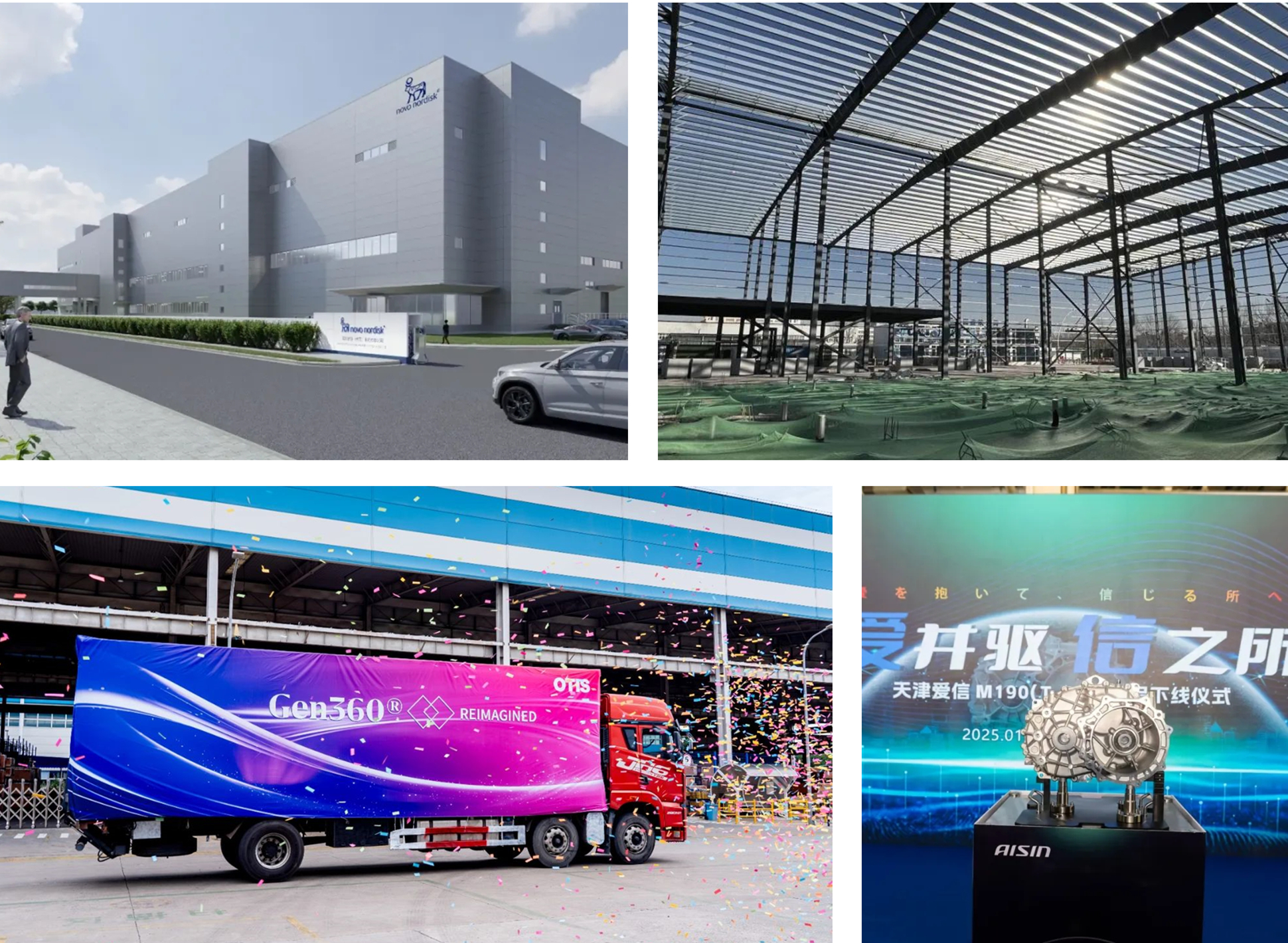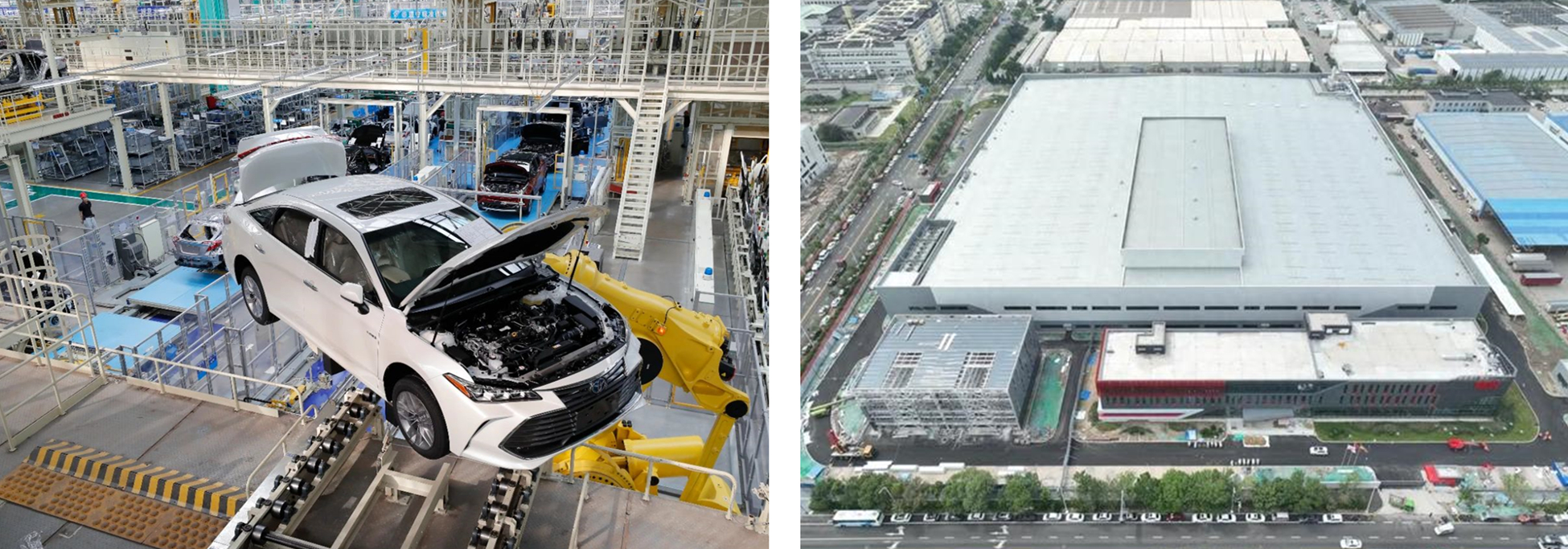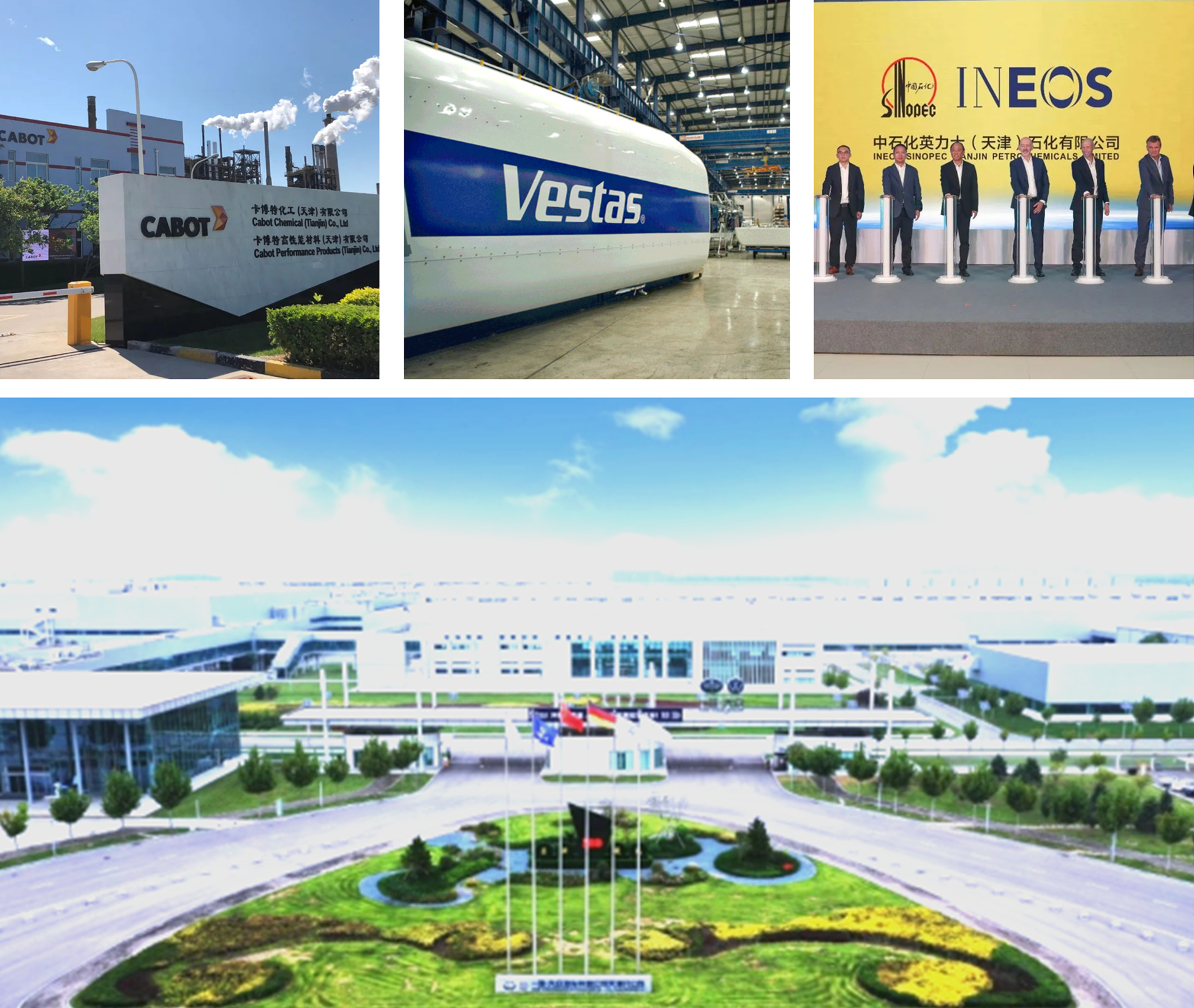Foreign Investors Foster New Engines for Higher-end, Smarter, and Greener Development in TEDA

The release of China’s 2025 Action Plan for Stabilizing Foreign Investment showed its commitment to further expanding its opening-up and encouraging foreign investment with more efforts. This favorable policy serves as a strong boost for TEDA, a front-runner of China’s reform and opening-up and a cluster for global high-quality enterprises, further strengthening the confidence of foreign investors to deepen their presence in TEDA.
Foreign investors have always been a vital player in TEDA’s economic growth, contributing approximately 45% of the region’s tax revenue, nearly half of its GDP, and over 70% of its industrial output. In recent years, TEDA has been focusing on a high-end, intelligent, and green orientation to drive industrial transformation and upgrading, as foreign investors take this opportunity to accelerate innovation and green development.


At the start of the new year, Tianjin released its 2025 Municipal-level Key Construction Projects List. Many are foreign-invested projects from TEDA, including FAW-Volkswagen Tianjin Branch’s Audi Model Technical Upgrade, Denso Electronics’ Second Factory, CONCENTRICUS PTE’s High-performance Polymer Materials Project (Phase I), Novo Nordisk’s Pharmaceutical Capacity Enhancement (2025), Otsuka Beverage’s Aseptic Production Line, and more. Spanning various fields of advanced manufacturing, these projects feature high value and high technology, highlighting the long-term commitment of foreign investors to rooting in TEDA and their pursuit of high-end development. They also serve as a testament to TEDA’s efforts to advance high-level opening-up and export-oriented economy.
Currently, these foreign-invested projects are making steady progress. Novo Nordisk’s Aseptic Preparation Expansion Project, with a total investment of RMB 4 billion, was launched in 2024 and is expected to be completed by 2027. The project plans to adopt world-leading isolator technology to provide a higher level of aseptic assurance for pharmaceutical production. Lars Arnoldsen, Corporate Vice President of Novo Nordisk President of its Tianjin Production Plant, said, “With the expansion project, we’ll be able to further increase manufacturing capability to support the localization of more innovative medicines.” Like Novo Nordisk, Otsuka has also recognized TEDA’s industrial strength and economic resilience, choosing TEDA as the site for its first aseptic production line in China. The project has now reached a key milestone with the steel structure of the production workshop topped out. The entire project is expected to achieve commercial production by 2026. Regarding the decision to establish operations in TEDA, Zhu Shuzeng, Director of Tianjin Otsuka Beverage Co., Ltd., said, “The settle-down of Otsuka Tianjin Plant is inseparable from TEDA’s excellent business environment and quality services.”
In addition to new projects, several new products have also been introduced. Aisin’s M190 automatic transmission recently rolled off the production line in TEDA. Otis’ next-generation smart digital elevator, Gen360?, was shipped from TEDA in 2024. This elevator is one of the first innovative achievements of Otis North China R&D Center, marking a full-process “Made in TEDA” journey from design and development to production. Behind these new products is the continuous increase in technology investments and the growing R&D capabilities of TEDA-based foreign investors. Currently, TEDA is home to 17 foreign-funded R&D centers, including the PPG Global Coatings Innovation Center and the Vitesco Technologies R&D Center. These world-class R&D centers enable seamless integration between research and manufacturing, significantly shortening the commercialization cycle of new technologies and accelerating the launch of new products. TEDA’s overall industrial competitiveness has witnessed great enhancement.


Driven by innovation efforts, foreign investors are also accelerating their transition towards intelligent and digital transformation. At FAW Toyota Tianjin Plant, a full-process smart logistics system has been established, enabling 100% intelligent transportation for nearly 1,000 types of components. Moreover, automation and intelligent operations have been fully integrated into key production processes such as stamping, welding, painting, and assembly, significantly enhancing production efficiency and strengthening the company’s market competitiveness. This transformation not only sets a benchmark for TEDA but also serves as a model for the intelligent evolution of China’s automotive manufacturing industry.
Smart factories in TEDA like FAW Toyota’s are not uncommon, and SEW-EURODRIVE (Tianjin) Co., Ltd. stands out among them. With over 30 years of deep-rooted presence in TEDA, SEW-EURODRIVE’s drive towards intelligent manufacturing has accelerated rapidly. Not only has the group established a world-class smart factory here, but it has also set up its China headquarters and Asia-Pacific Manufacturing Center. In 2024, the SEW-EURODRIVE Smart Assembly Center was put into operation. This center incorporates SEW-EURODRIVE’s cutting-edge intelligent logistics technologies and is dedicated to creating a model smart manufacturing plant in China. A representative from SEW-EURODRIVE China expressed great confidence in the center’s development in TEDA, saying, “The Smart Assembly Center will continue to introduce the most advanced smart manufacturing electronic products from Germany to support the localization in China.”
The intelligent transformation by foreign enterprises such as FAW Toyota and SEW-EURODRIVE is a vivid example of how TEDA is advancing new industrialization. As a national-level development zone, TEDA has consistently made smart manufacturing and digital transformation the core strategies for regional development. With its robust manufacturing foundation and the compounded advantages provided by the combined policies of the Pilot Free Trade Zone and the Development Zone, TEDA has created an exceptionally favorable industrial environment for the intelligent development of local enterprises. This environment helps companies achieve lower costs, higher quality, and more efficient results, thereby making intelligent and digital transformation a key engine for regional industrial growth.


Green and low-carbon development is the ecological foundation of new industrialization. As one of the earliest development zones in China to embrace a sustainable path, TEDA has established a model for green growth through top-level planning, industrial upgrading, and technological innovation. This has created fertile ground for foreign investors to advance their own green development initiatives.
In the automotive manufacturing sector, FAW-Volkswagen Tianjin Branch stands as a pioneer in energy conservation and emission reduction, earning numerous national-level green accolades. Most recently, it was recognized as one of Tianjin Binhai New Area’s first “Near-Zero Carbon Factories.” Since its inception, FAW-Volkswagen Tianjin Branch has embedded green manufacturing concepts into every stage of the automotive production lifecycle, carrying out more than 100 energy-saving and emission-reduction projects. These efforts have not only facilitated the company’s own green transformation but have also driven sustainability throughout the industry chain, promoting the entire automotive industry to grow more eco-friendly.
Cabot’s Tianjin plant has also made significant strides in green development. By leveraging a range of advanced environmental technologies, the plant has successfully transformed production waste into reusable resources. Its independently developed waste heat recovery system efficiently captures heat generated during equipment operation, reducing reliance on external energy sources. Additionally, the factory has upgraded its baking equipment, enabling the recovery and reuse of heated air, maximizing resource efficiency.
While companies like FAW-Toyota and Cabot serve as models for TEDA’s push to green traditional industries, enterprises such as Sinopec INEOS and Vestas represent TEDA’s efforts in fostering a thriving green industry. In 2023, Sinopec INEOS (Tianjin) Petrochemical Co., Ltd. was established, focusing on the development of high-performance, energy-efficient green chemical products. Meanwhile, Vestas, a global leader in the wind power industry, has introduced cutting-edge wind energy technology and equipment to TEDA. These green industry enterprises have not only enriched TEDA’s industrial ecosystem but have also created strong synergies within the sector, collectively driving the development of a dynamic and highly competitive green economy in the region.

In the wave of globalization, TEDA has become the top choice for foreign-invested enterprises due to its complete industrial ecosystem and high-quality business environment. Judy Marks, Chairman, CEO, and President of Otis, stated, “Otis is confident in its development in Tianjin.” Yan Caiming, General Manager of PPG Asia Pacific, has also remarked, “TEDA is a land of fortune for business development.” Numerous foreign-invested enterprises have gathered in TEDA from around the world, driving the global market with “TEDA-made” products through high-end, intelligent, and green development. In the future, driven by cutting-edge ideas and advanced technologies, TEDA will attract more foreign investment projects, accelerating industrial transformation and upgrading, and creating a new chapter of high-quality development.













 津公网安备 12019002000128号
津公网安备 12019002000128号

